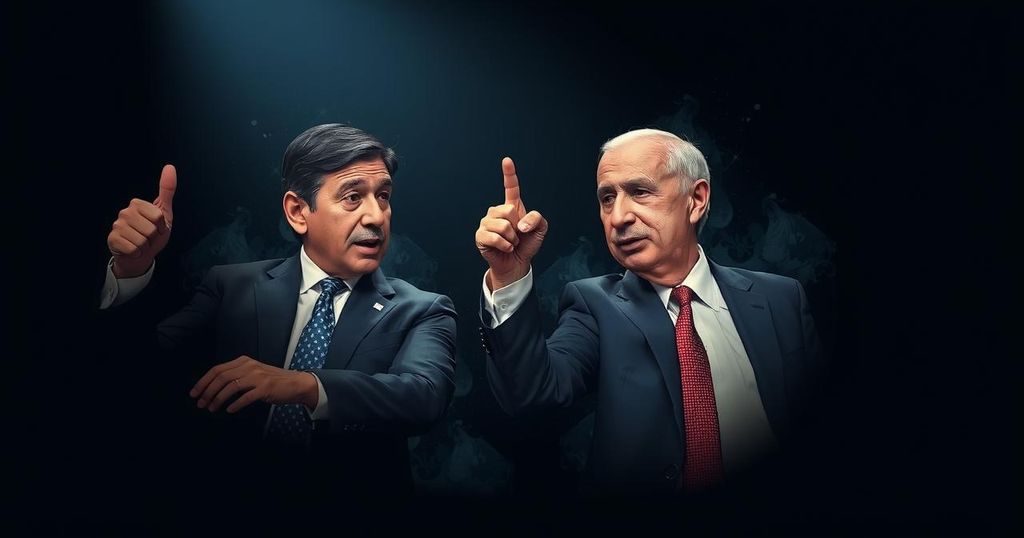Uruguay’s Presidential Runoff: A Competitive Race between Delgado and Orsi
Uruguayans will participate in a presidential runoff election on November 26, 2024, between Álvaro Delgado of the National Party and Yamandú Orsi of the Broad Front coalition. The election follows an initial round where Orsi secured 44% of the vote, while Delgado received 27%, revealing a competitive race with many undecided voters. The candidates are addressing issues of public safety, economic policy, and social reforms, amidst a backdrop of voter apathy and low political polarization.
Uruguayans are set to return to the polls for a decisive presidential runoff on Sunday, with the competition heating up between incumbent National Party candidate Álvaro Delgado and Yamandú Orsi of the Broad Front coalition. Neither candidate achieved a clear majority in the first round of voting on October 27, where Orsi led with 44% while Delgado garnered 27%. Despite the close race, significant uncertainty persists, with polls indicating a near tie and a notable fraction of voters still undecided.
The election represents a clash between two contrasting political ideologies. Orsi, who draws from a legacy of progressive reforms, stands as an advocate for further social policies while Delgado seeks to maintain continuity under President Lacalle Pou, advocating for a market-driven economy. Voter engagement is reportedly muted, reflecting a broader sentiment of apathy amid minimal political polarization, although concerns about rising crime have motivated both candidates to address public safety in their platforms.
As the campaigns unfold, both candidates focus on issues like taxation and social spending, yet without the intense fervor seen in other political contexts. The election reflects Uruguay’s democratic resilience, distinct from the populist surges witnessed in many other countries, showcasing a sophisticated electorate weighing its future amid a backdrop of economic stability and social challenges.
The 2024 Uruguayan presidential election marks a significant political moment as the nation approaches a runoff between the ruling National Party and the leftist Broad Front coalition. After a substantial period of governance by the Broad Front, the election turned competitive following the center-right administration led by President Luis Lacalle Pou. This runoff highlights key national issues including economic policies, social reforms, and public safety, with both candidates presenting distinct visions for Uruguay’s future. The political climate indicates a desire for stability balanced against progressive aspirations in a country with a rich democratic tradition.
The upcoming presidential runoff in Uruguay not only serves as a referendum on the governing policies of the National Party but also underscores the complex dynamics facing both candidates. With a divided electorate and significant undecided voters, the outcome could reshape Uruguayan politics. This election illustrates the unique position of Uruguay within a volatile region, characterized by a commitment to democratic processes and the absence of extreme political division. Ultimately, the choices made by voters may significantly impact the country’s economic and social trajectory moving forward.
Original Source: apnews.com




Post Comment